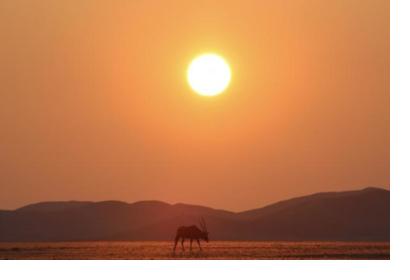This is an excerpt from a press release from the World Meteorological Organization (WMO) published on 12 January 2023. Find the full press release here.
The past eight years were the warmest on record globally, fueled by ever-rising greenhouse gas concentrations and accumulated heat, according to six leading international temperature datasets consolidated by the World Meteorological Organization.
The average global temperature in 2022 was about 1.15 [1.02 to 1.27] °C above the pre-industrial (1850-1900) levels. 2022 is the 8th consecutive year (2015-2022) that annual global temperatures have reached at least 1°C above pre-industrial levels, according to all datasets compiled by WMO. 2015 to 2022 are the eight warmest years on record. The likelihood of – temporarily – breaching the 1.5°C limit of the Paris Agreement is increasing with time.
The persistence of a cooling La Niña event, now in its third year, means that 2022 was not the warmest year on record, but is “only” the fifth or sixth warmest. But this cooling impact will be short-lived and will not reverse the long-term warming trend caused by record levels of heat-trapping greenhouse gases in our atmosphere. The WMO El Niño/La Niña Update indicates about a 60% chance that La Niña will persist during January-March 2023, and should be followed by ENSO-neutral conditions (neither El Niño or La Niña).
The 10-year average temperature for the period 2013-2022 is 1.14 [1.02 to 1.27] °C above the 1850-1900 pre-industrial baseline. This compares with 1.09°C from 2011 to 2020, as estimated by the Intergovernmental Panel on Climate Change (IPCC) Sixth Assessment report, and indicates that long-term warming continues.
Dramatic weather disasters
“In 2022, we faced several dramatic weather disasters which claimed far too many lives and livelihoods and undermined health, food, energy and water security and infrastructure. Large areas of Pakistan were flooded, with major economic losses and human casualties. Record breaking heatwaves have been observed in China, Europe, North and South America. The long-lasting drought in the Horn of Africa threatens a humanitarian catastrophe,” said WMO Secretary-General Prof. Petteri Taalas.
Global warming and other long-term climate change trends are expected to continue because of record levels of heat-trapping greenhouse gases in the atmosphere. Extreme heatwaves, drought and devastating flooding have affected millions and cost billions this year, according to the World Meteorological Organization’s provisional State of the Global Climate in 2022 report. Late December, severe storms affected large areas of North America. High winds, heavy snow and low temperatures led to widespread disruption in the east. Heavy rain, mountain snow, and flooding affected areas in the west.
“There is a need to enhance preparedness for such extreme events and to ensure that we meet the UN target of Early Warnings for All in the next five years,” said Prof. Taalas. “Today only half of 193 Members have proper early warning services, which leads to much higher economic and human losses. There are also big gaps in basic weather observations in Africa and island states, which has a major negative impact on the quality of weather forecasts.”
[...]
Read the full press release here.
© 2022 World Meteorological Organization (WMO)
Photo by Tim Gray, The Sossusvlei area of Namibia, WMO 2023 calendar competition

